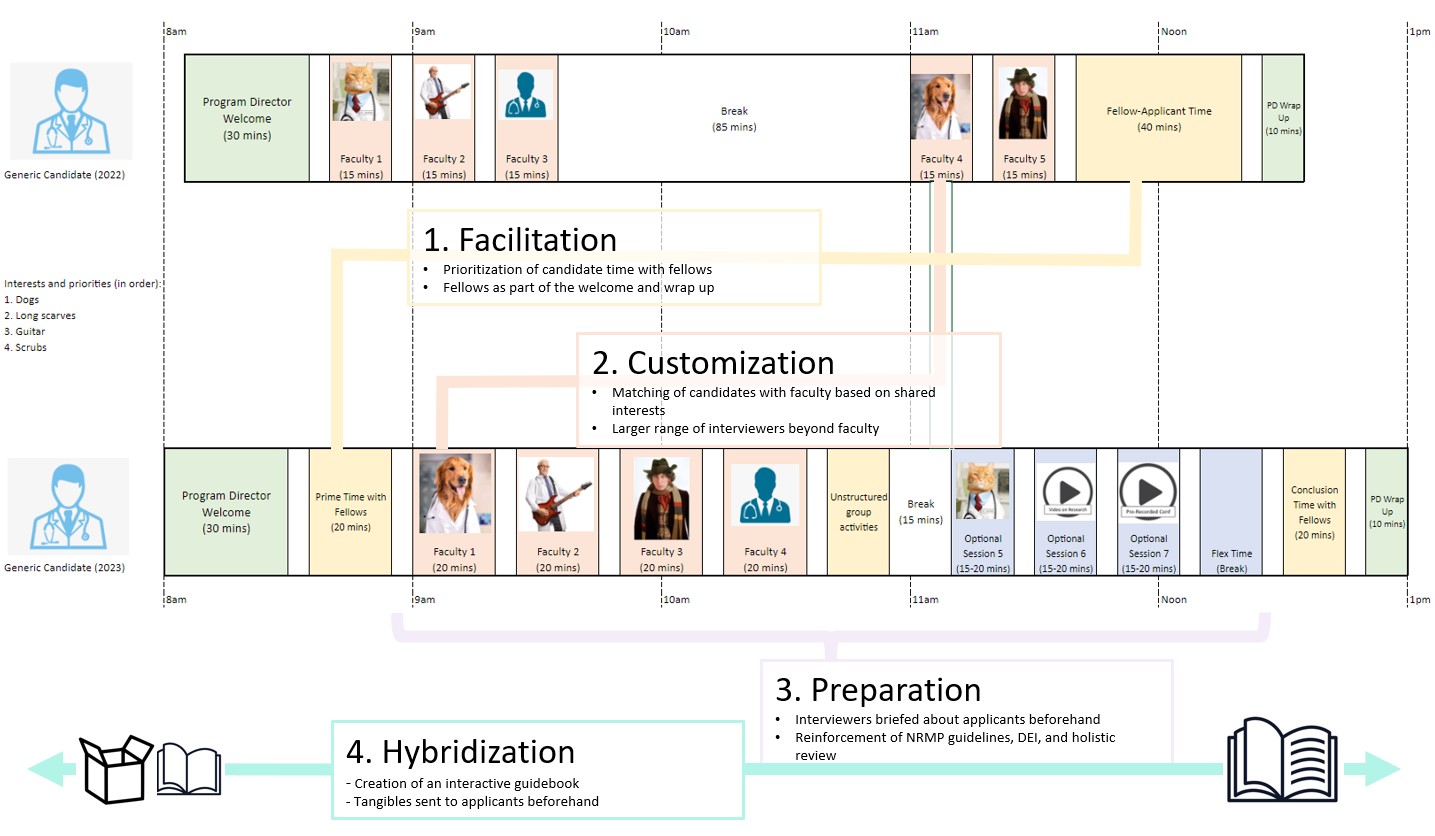Session Information
Session Type: Abstract Session
Session Time: 2:00PM-3:30PM
Background/Purpose: Design-thinking is a creative problem-solving process used to better understand users’ needs and experiences so that a product or service can be improved. Its emphasis on empathy, iterative prototyping, and participatory collaboration make it an ideal methodology for innovation in medical education. We apply this framework to refine the virtual rheumatology fellowship interview process, a relatively new and ad hoc development emerging as a necessity during the COVID pandemic, so that virtual interviews can become more applicant-centered.
Methods: This educational quality improvement project uses a design-thinking framework to identify opportunities and challenges for rheumatology fellowship applicants. The investigators use the 5-step process (Empathize, Define, Ideate, Prototype, Test) and incorporate rapid qualitative analysis of semi-structured interviews to innovate the interview experience. The iterative and collaborative nature of this process has empowered participants to co-design an applicant-centered interview experience.
Results: Interviews with fellowship applicants (n=9), fellow physicians (n=4), and faculty members (n=3) identified three major dynamics of the interview process: (1) Is it a safe environment to ask questions? (2) how do I exchange information effectively? and (3) how do I fit all this data into the bigger picture? Creative brainstorming techniques at a series of 3 workshops yielded 4 prototypes emphasizing customization, hybridization, facilitation, and preparation. A finalized applicant-centered interview template was devised in preparation for the 2023-2024 application season.
Conclusion: Design-thinking has yielded insights into three important dynamics that drive applicant experiences. These insights allow for a redesign of processes so that virtual interviews can be more applicant-centered. This framework allows for further iterations and modifications as the needs of applicants and programs evolve over time.
To cite this abstract in AMA style:
Feng A, Iftekhar A, Ni R, Gheriani G, Kumar B. Using Participatory Design-Thinking Process to Create a More Applicant-Centered Rheumatology Fellowship Interview Experience [abstract]. Arthritis Rheumatol. 2023; 75 (suppl 9). https://acrabstracts.org/abstract/using-participatory-design-thinking-process-to-create-a-more-applicant-centered-rheumatology-fellowship-interview-experience/. Accessed .« Back to ACR Convergence 2023
ACR Meeting Abstracts - https://acrabstracts.org/abstract/using-participatory-design-thinking-process-to-create-a-more-applicant-centered-rheumatology-fellowship-interview-experience/



